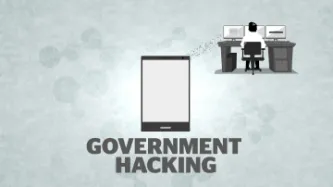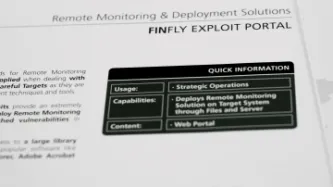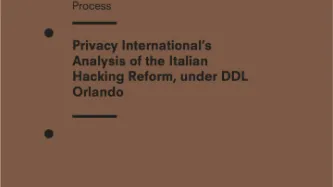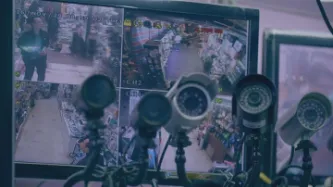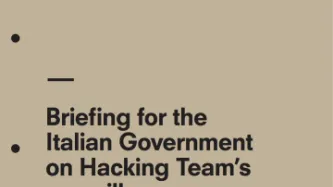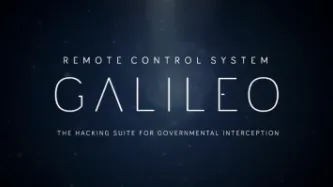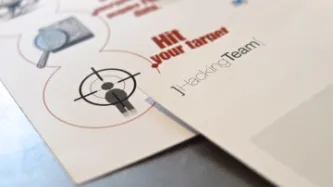Search
Content type: Examples
In response to a case brought by three Italian trade unions, a court in Palermo has ruled that the points system used by the Italian food delivery service Foodinho discriminates against disabled and older riders, as well as those with special family or personal circumstances. A subsidiary of Spain's Glovo Group, Foodinho's system awards higher scores to riders who complete more deliveries or are available at peak times; high scores give riders greater choice and better work opportunities. …
Content type: Examples
Foodinho, the Italian food delivery subsidiary of the Spanish company Glovo, continues to accumulate millions of euros in fines for infringements of labour law such as collecting and misusing riders' data. New research studying Glovo's app indicates that the company appears to have created its own hidden scoring system so evaluate couriers' performance, and shares personally identified riders' after-hours location with Google and other unauthorised third-party trackers.https://algorithmwatch.…
Content type: Case Study
Como is one of the most advanced cities in Italy in the use of facial recognition technology (FRT). An investigation for the Italian Wired magazine published in June 2020 exposed how the system had been bought, installed and tested for months with little transparency and despite the lack of a clear legal framework.
The investigation was entirely based on tools available to everyone, such as Freedom of Information requests (FOI requests. Similar to PI’s campaign 'Unmasking policing, inc', it…
Content type: Examples
In April, as the crisis in Italy began to ease, some Italian health officials and politicians, among them Luca Zaia, the regional president of the northeastern region of Veneto, began to propose a “Covid Pass” that would Italians who have antibodies showing they have had and recovered from the coronavirus to exit the lockdown and go back to work. Veneto, adjacent to the hardest-hit area, Lombardy, planned to begin collecting 100,000 blood samples from people across the region for the purpose of…
Content type: Examples
Using mobile phone data to verify the movements of their owners, the Italian region of Lombardy found that between February 20, when the first COVID-19 case was discovered, and March 10, movement by its 2 million inhabitants dropped by just under 60%. Lombardy has also used cell phone data, obtained from the telecommunications companies and transferred to the ISI Foundation for a public impact research project, to monitor how many people move around the district. Because of privacy laws, the…
Content type: Examples
The surveillance tool supplier Cy4Gate is pitching surveillance tools to track every citizen and their contacts to multiple governments around the world, including their own. In a demonstration of the system, Governments using the system, which Cy4Gate calls "Human Interaction Tracking System (HITS), would track mobile phone users' location via GPS, cellphone tower data, and Bluetooth. Cy4Gateis ready to offer the system for free to Italian authorities, and pitched it publicly on Twitter in…
Content type: News & Analysis
Privacy International notes a recent ruling issued by Italy’s Supreme Court (Corte di Cassazione) that addresses the need to limit government hacking powers for surveillance purposes and articulates required safeguards when hacking is conducted as part of a criminal investigation.
The ruling addresses the appeals of several individuals involved in a case of corruption; the appeals challenge irregularities in the collection of data as part of the criminal investigation, which resulted in the…
Content type: Press release
On 15 March 2017, the Italian Senate voted on a Bill, put forward by Justice Minister Andrea Orlando, that will reform the criminal justice system, including amending the Code of Criminal Procedure. Among the many provisions contained in DDL Orlando, currently pending approval by the Italian House of Representatives, the Government is mandated to regulate, via a legislative decree, the utilisation of malware (commonly referred to as ‘Trojans’ in Italian discourse) to engage hacking for criminal…
Content type: News & Analysis
Private surveillance companies selling some of the most intrusive surveillance systems available today are in the business of purchasing security vulnerabilities of widely-used software, and bundling it together with their own intrusion products to provide their customers unprecedented access to a target’s computer and phone.
It's been known for some time that governments, usually at a pricey sum, purchase such exploits, known as zero- and one-day exploits, from security researchers to…
Content type: Advocacy
Privacy International generally opposes hacking as a tool for surveillance. While the DDL Orlando is an opportunity to fill the current legislative gap in the use of hacking for investigative purposes, PI believes that it falls short of the requirements of existing international human rights law.
Content type: Advocacy
Update
Subsequent to our letter of January 2017 to the Italian export authorities expressing our belief that the export of an internet network surveillance system to Egypt poses a clear risk to human rights, the Ministry of Economic Development has confirmed in a press release that the authorisation has been revoked.
While the decision is to be welcomed, a feature documentary broadcast yesterday on Al-Jazeera shows the severity of the surveillance industry’s threat to privacy and…
Content type: Advocacy
Privacy International and the Italian Coalition for Civil Liberties' Joint Submission in Consideration of the Sixth Periodic Report of Italy Human Rights Committee 119th Session (6-29 March 2017).
The submission brings to the attention of the Committee the ongoing concern with Italian security agencies’ hacking capabilities and intelligence sharing arrangement, with Italian data retention procedures, and its export control regime as it relates to its robust…
Content type: News & Analysis
Hacking Team, an Italian surveillance company selling intrusive spyware to government authorities around the world, has had its global export license revoked by the Italian export authorities, according to a report in Il Fatto Quotidiano.
The move comes after intensive media scrutiny spurred by the hack of their internal systems last summer and revelations that they had sold surveillance technology to some of the world’s most authoritarian states.
One of the countries to which Hacking…
Content type: Press release
A 400 gigabyte trove of internal documents belonging to surveillance company Hacking Team has been released online. Hacking team sells intrusive hacking tools that have allegedly been used by some of the most repressive regimes in the world.
The documents reportedly confirm Hacking Team has customers in 35 countries, including some that routinely abuse human rights. These documents seemingly validate research conducted by Citizen Lab…
Content type: Report
Privacy International briefing for the Italian Government on Hacking Team's surveillance exports
Content type: News & Analysis
Investigations by Privacy International in co-operation with VICE Motherboard, reveal that Hacking Team has sold its Remote Control System to the US Drug Enforcement Agency and US military via a front company based in the US.
The investigation catalogues what is known about Hacking Team’s intrusive spyware that can remotely switch on the microphone on mobile phones, activate webcams, as well as modify and/or extract data from the computer or phone itself. Whether the export was corrected…
Content type: News & Analysis
Only a few days after it was reported that intrusive surveillance technology developed and sold by Italian surveillance company Hacking Team was found in some of the most repressive countries in the world, Privacy International has uncovered evidence which suggests the company has received over €1 million in public financing.
It has come to Privacy International’s attention that Hacking Team appears to have received €1.5 million from two venture capital funds originating from the Region of…
Content type: News & Analysis
Hacking Team is a supplier of “lawful intercept” technology based in Milan. A regular attendee of surveillance industry conferences around the world, last year one of the company’s founding partners told the Guardian that Hacking Team had sold surveillance software to 30 countries across five continents.
Hacking Team’s marketing material promises that it can “defeat encryption” and “attack and control target PCs from a remote location” in a way that “cannot be detected”. The…
Content type: News & Analysis
Earlier this year, Privacy International began research into the corporate social responsibility policies of companies that sell communications surveillance technology. Given that this technology is known to facilitate human rights abuses in repressive regimes around the world, surveillance tech companies that claims corporate responsibility might be expected to address such concerns in their CSR policy documents.
Of the 246 companies known to partake in the communications surveillance…

